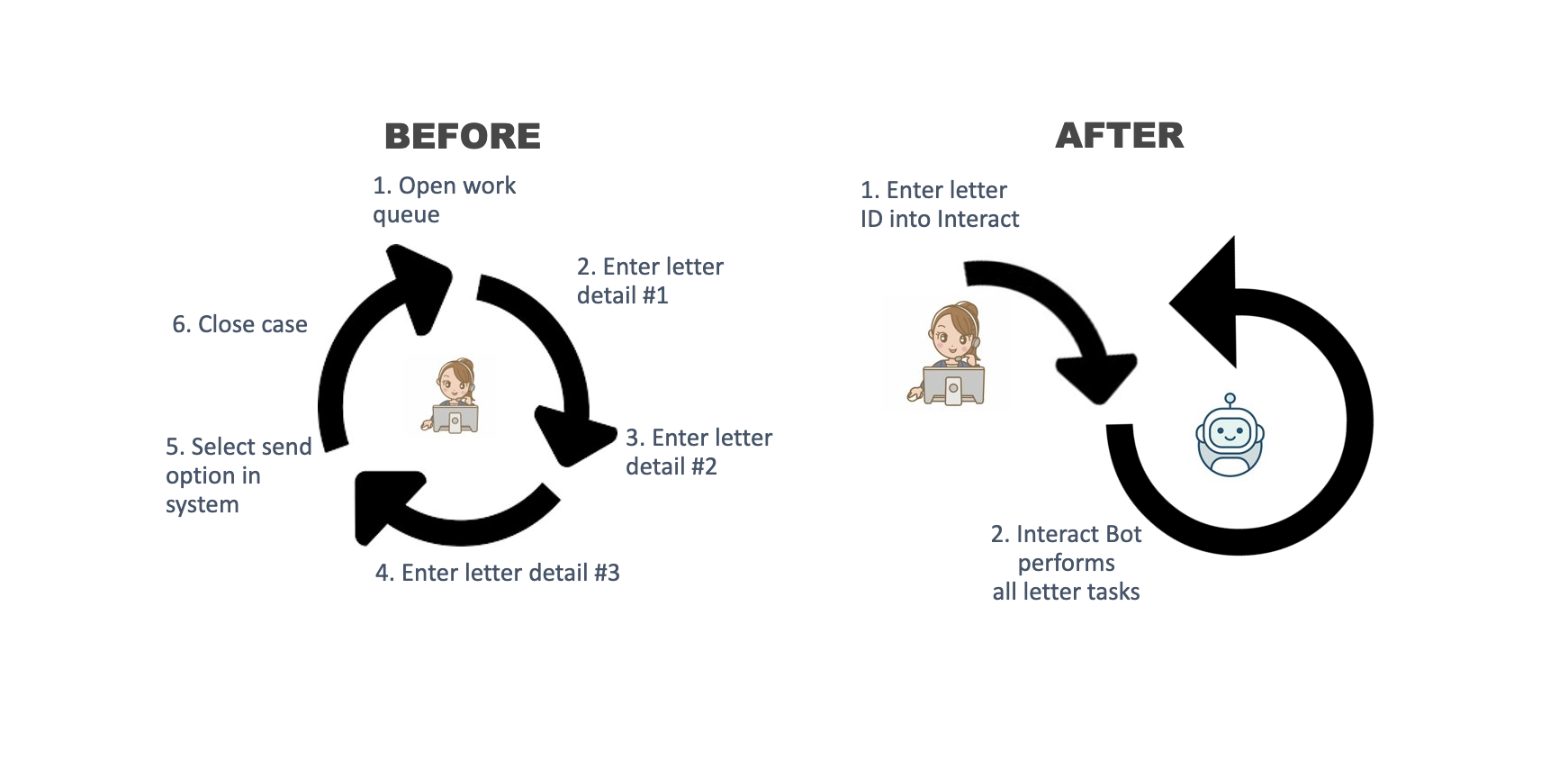The hours a team can work in a day are limited, and leaders are increasingly looking for ways to help their teams focus on the most important, innovative work while automating manual tasks. If you look closely at Discover, you will find bots scuttling about in operations teams.
One such operations team uses the Interact automation tool that is part of our Robotic Process Automation (RPA) suite of tools. Interact differs from traditional RPA in that instead of running on a schedule, employee agents can initiate its processing. By enabling agents to determine when to initiate the RPA, this type of automation in the industry is often called Human-in-the-Loop or HitL.
Using a HitL bot to personalize content
One of the first HitL bots deployed at Discover was developed by Discover’s RPA team that supports our Card business. The RPA solution took a manual process of personalizing letter content based on the intended recipient and automated the process. Now instead of filling out the letter details manually, agents can input a few details into the Human-in-the-Loop interface and the bot personalizes the remainder of the letter using pre-determined logic. On average, the letter bot is executing over 15K letters per month and saving nearly 2,000 hours annually, exceeding original productivity expectations.
The following image shows the steps involved in sending letters before versus the new, streamlined automated flow.

Benefits of HitL
The primary benefit of using HitL automation is control. HitL automation allows an employee to identify when to run the automation on demand, for a single event as needed versus traditional RPA automation that runs on a schedule. Other benefits include:
- The HitL interface that triggers the automation is highly customizable making it user friendly and easy to use in production.
- The HitL interface can be deployed to as many team members as needed.
- The RPA functionality behind the HitL automation has all the same benefits as traditional RPA: reduces process errors, minimizes risk, creates capacity within teams, improves customer and employee experiences, and the like.
- RPA functionality in general reduces tedious, repetitive tasks to enable a focus on value-added work, elevating employee engagement.
Conclusion
The benefit of the HitL bot that this operations team uses is that it frees agents to focus on more impactful tasks—or provides more time back in their calendars which is also critical to help team members avoid burnout. The team’s success with their first HitL bot means that they are looking for new tasks to automate, creating space for agents to focus on improving their comfort and ability in handling more complex customer interactions.
"It's not about us creating capacity by asking our agents to work faster! Instead, automation is creating capacity by removing repetitive manual work. And now we can reinvest that time back into our agents," – Nicole Diaz, Discover Department Manager



